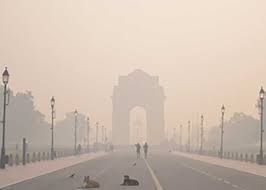Smog Chokes NCR, 14 Districts on High Alert
As the National Capital Region (NCR) grapples with the season’s worst smog, authorities have sounded a high alert across 14 districts, highlighting a looming health emergency. Air Quality Index (AQI) readings in several parts of Delhi and adjoining regions crossed the "severe" mark, leaving residents gasping for fresh air. Schools have been instructed to restrict outdoor activities, and emergency health advisories flood social media, urging people to avoid stepping out unnecessarily.
This environmental crisis has once again raised questions about the effectiveness of government policies aimed at controlling pollution. The Graded Response Action Plan (GRAP), designed to tackle air pollution, appears to be struggling against the sheer magnitude of the problem. Critics argue that a reactive approach, instead of long-term measures, is costing the region its breathable air.
Vehicular emissions, industrial pollution, and crop stubble burning in neighboring states have all contributed to the toxic haze enveloping the NCR. However, finger-pointing between state governments continues, with little resolution in sight.
The residents are not just losing patience but also their health. Reports of respiratory illnesses have surged in hospitals, especially among children and the elderly. Many are questioning whether the annual crisis will ever be met with a permanent solution or if NCR will remain a smog chamber every winter.
The growing desperation for clean air is a stark reminder: the time for action is now. Authorities must rise above politics and take decisive, coordinated measures to address this escalating threat to public health.

